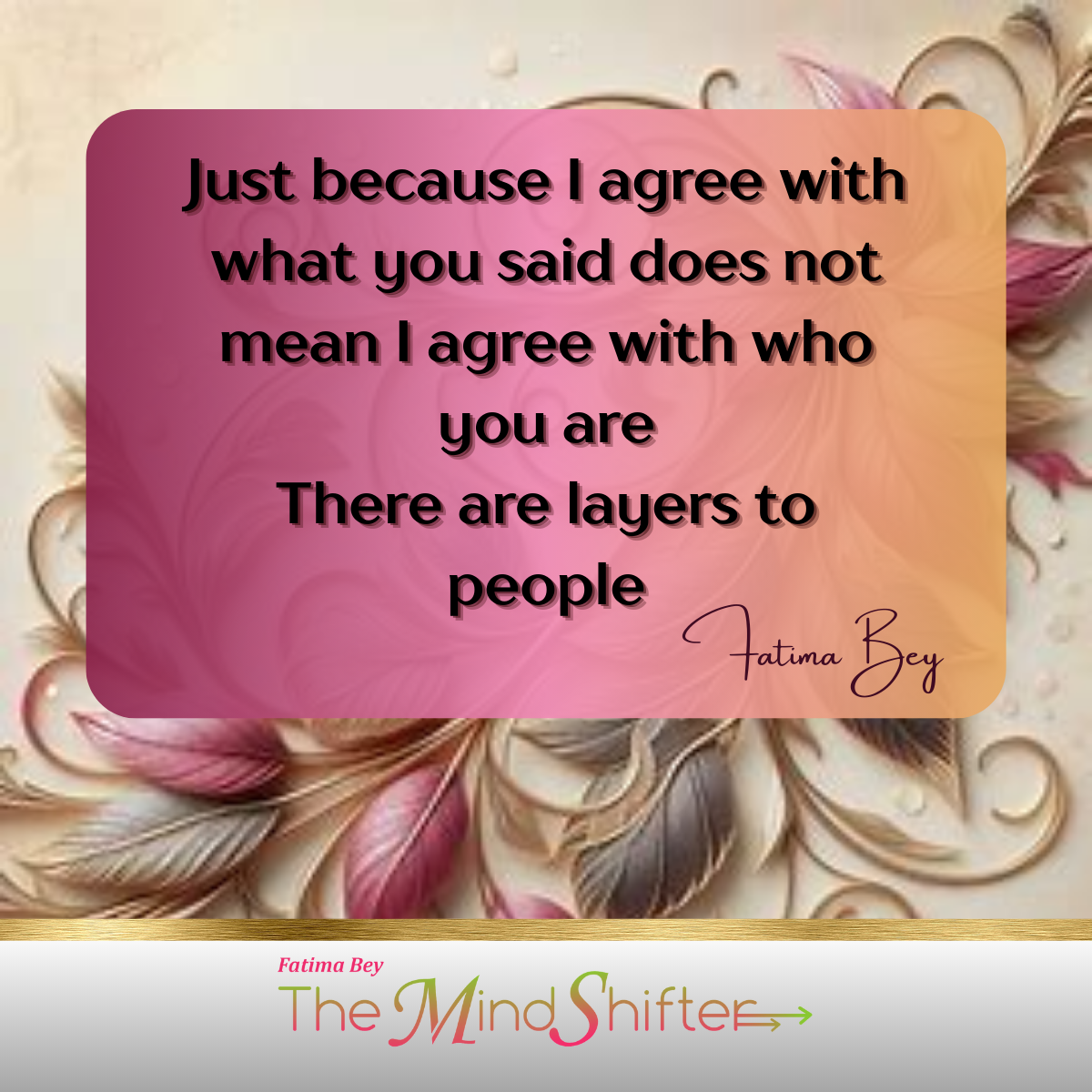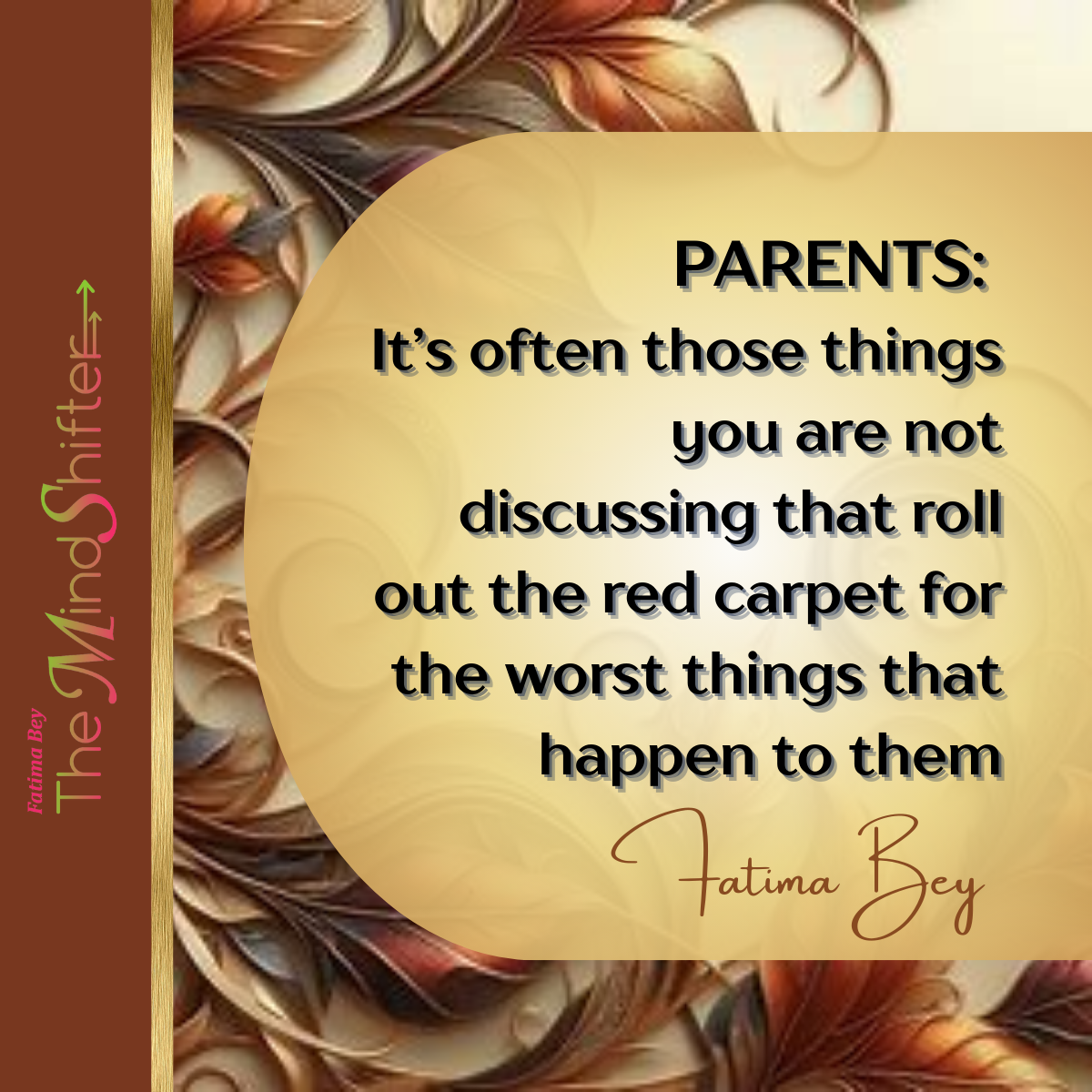The Mirror Has Many Faces
If this made you think, it could do the same for someone else. Pass it on.

The Mirror Has Many Faces
"Just because I agree with what you said does not mean I agree with who you are. There are layers to people."
This simple truth cuts through one of our most destructive mental habits: the all-or-nothing assessment of human beings.
The Dangerous Leap from Statement to Soul
We live in a world obsessed with complete packages. When someone expresses a viewpoint that resonates with us, we unconsciously leap to conclusions about their entire character. When they share an opinion we despise, we write off everything else they might offer.
This black and white thinking creates a cascade of problems. It makes us vulnerable to manipulation by those who say the right things while living wrong lives. It blinds us to wisdom from sources we've prematurely dismissed. Most dangerously, it turns every conversation into a character evaluation rather than an exchange of ideas.
Consider how this plays out in real life. A corrupt politician makes a valid point about healthcare—suddenly their supporters defend their corruption because they agreed with the policy. A difficult family member offers sound financial advice—we reject it because we can't separate their wisdom from their personality flaws. A celebrity we admire reveals problematic views—we either defend the indefensible or throw away everything good they've contributed.
The Cost of Black and White Thinking
This all-or-nothing approach doesn't just harm our judgment—it blocks our growth. When we bundle agreement with endorsement, we lose access to valuable perspectives simply because they come from imperfect messengers. When we assume that disagreeing with someone's lifestyle means rejecting all their insights, we cut ourselves off from learning opportunities.
The workplace becomes a minefield where we can't appreciate a colleague's technical skills without seeming to approve of their poor work ethic. Friendships become fragile because we feel we must either accept everything about someone or reject them entirely. Family relationships fracture because we can't figure out how to love someone whose choices we don't understand.
Even worse, this thinking creates internal chaos. We exhaust ourselves trying to reconcile how someone we "should" like can say something we hate, or how someone we "shouldn't" like can offer something valuable. We twist ourselves into mental pretzels rather than simply accepting that humans are complex.
The Balanced Alternative
The solution isn't to become indiscriminate or to abandon our values. It's to develop what I call "layered thinking"—the ability to evaluate ideas and actions independently from their source.
This means developing the mental flexibility to say: "I appreciate your insight about parenting while completely disagreeing with your financial choices." Or: "I value your expertise in this area while rejecting your approach to relationships." Or even: "I agree with this specific point you made while maintaining my overall concerns about your character."
Layered thinking requires us to hold multiple truths simultaneously. Someone can be wise about business and foolish about love. They can offer profound insights about creativity while being terrible at friendship. They can make a brilliant point about social justice while living a hypocritical lifestyle.
The Practice of Precision
To develop this balance, start by getting precise with your language. Instead of saying "I don't like them," try "I don't agree with their approach to ABC." Instead of "They're amazing," try "They have valuable insights about XYZ."
When you catch yourself making sweeping judgments, pause and ask: "What specifically am I responding to? Their idea, their character, their behavior, or my assumptions about them?" Learn to separate the message from the messenger, the behavior from the person, the moment from the pattern.
This doesn't mean becoming wishy-washy or abandoning discernment. You can still have strong opinions, set firm boundaries, and make clear choices about who you spend time with. The difference is that your decisions will be based on accurate assessments rather than oversimplified categories.
The Freedom of Layers
When you master layered thinking, something remarkable happens. You become immune to the manipulative tactics of those who try to gain your complete trust through partial truths. You become open to learning from unexpected sources. You become more nuanced in your relationships and more effective in your disagreements.
You stop wasting energy trying to reconcile contradictions that don't actually need reconciling. You can disagree with someone's politics while appreciating their work ethic. You can critique someone's choices while valuing their expertise. You can love someone while rejecting their advice.
Most importantly, you become more honest about yourself. If you can accept that others contain multitudes, you can finally accept that you do too. You can hold your own contradictions with less shame and your own growth with more patience. Recognizing your own contradiction is a part of growth.
The Mirror's Reflection
The next time you find yourself agreeing with someone, resist the urge to upgrade them to hero status. The next time you find yourself disagreeing, resist the urge to downgrade them to villain status. Instead, simply let the agreement or disagreement stand on its own merit.
Remember: every person is a library, not a single book. You can check out the volumes that serve you while leaving the others on the shelf.
After all, when you look in the mirror, you don't see just one face—you see all the faces you've ever been and could still become. Shouldn't you extend the same layered vision to everyone else?
Perhaps the question isn't whether we agree with who someone is, but whether we're wise enough to see them as they truly are: human. Just like you.
Because in the end, the truest reflection shows depth, not just surface—and the deepest connections happen when we peel back assumptions, not pile them on.
Fatima Bey The MindShifter
International Speaker, Coach & Creator of the MindShift Universe









